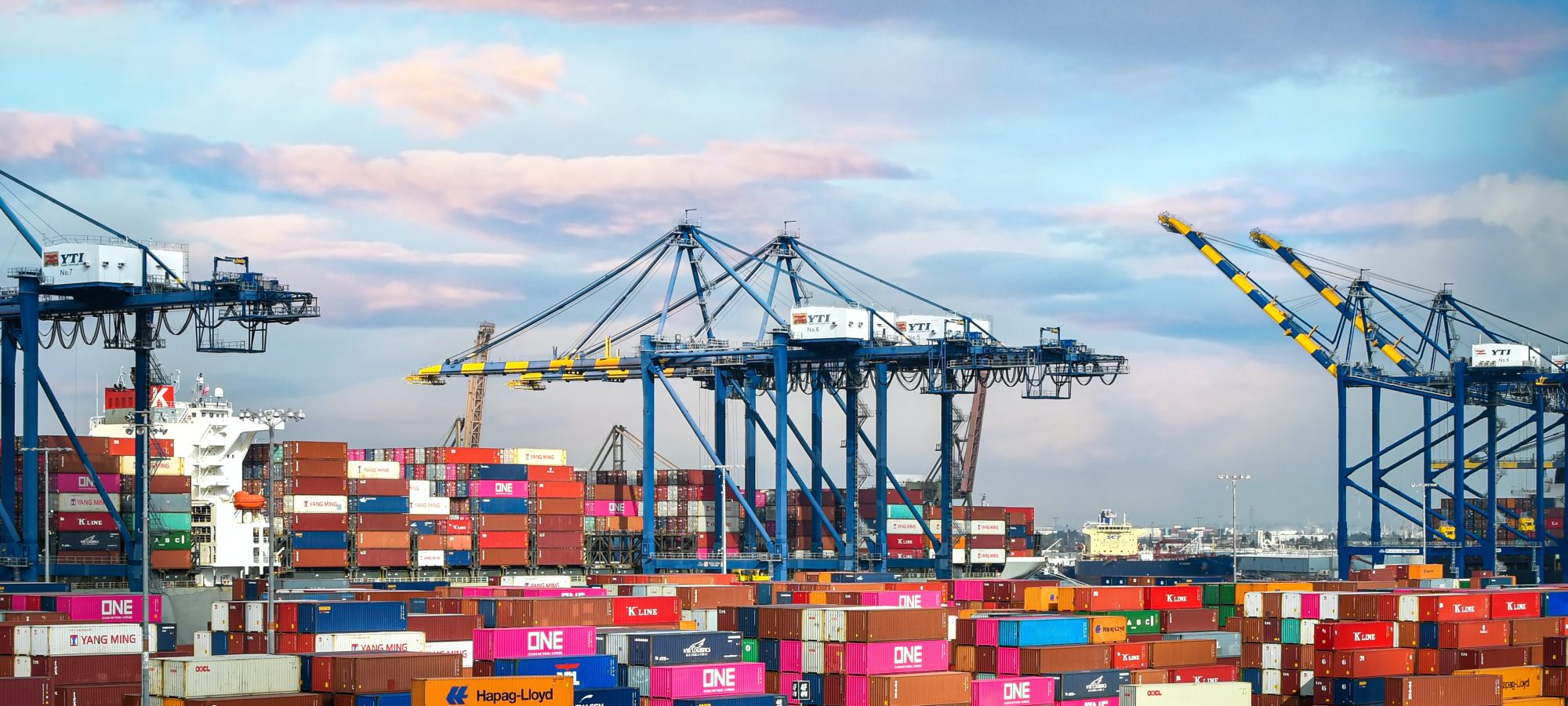Supply chains, and the consequences of their breakdown, have been an unusual, and somewhat regular, topic of mainstream news since the emergence of COVID-19. Backlogs of containers at ports, empty shelves in shops and shortages of personal protective equipment (PPE) and fuel have made essential but for the most part invisible mechanisms worthy of headlines.
Procuring the right commodities to arrive at the right place, at the right time, is only one of many steps in a long and complicated chain. It only takes a fine speck of dust to enter the mechanics of this global supply chain to have potentially serious knock-on effects – impacting economies and global trade. COVID-19 was more than a speck of dust, it was a super-sized spanner in the works and international non-governmental organisations, like Malaria Consortium, have not been spared from the significant disruptions to their supply chains.
Some of our work, like our seasonal malaria chemoprevention (SMC) programme and long-lasting insecticide net (LLIN) distributions are delivered at scale, dependent on specific commodities, requiring good time management and leaving little room to deal with unplanned events or delays. We primarily deliver SMC across the Sahel region, where peak malaria transmission coincides with the annual rainy season from June to September. It is critical to get commodities to the right place on time – failure to do so would mean not protecting people with life-saving preventive interventions, many of whom are pregnant women and young children, from malaria.
In the last 12 months we have faced many challenges, from congestion along shipping routes, operators cancelling or rerouting container ships and increasing costs. The majority of these risks sit outside of our control, which is why it is critical to seek out and develop strong relationships with the right suppliers, finding ways to reduce or simply avoid the risks during the procurement stage. Work like this brings to life the maxim ‘time is of the essence’ and I have found that it is imperative to have an eagle eye on upstream activities, advocate for transparency and, perhaps most importantly, communicate effectively with all stakeholders, because an effective supply chain network isn’t possible without a proactive flow of accurate information.
Mitigating risks
Working with reputable manufacturers, accredited by international standards, is a good start to ensure that quantity, quality and price can be met within an agreed lead-time. Throughout the last year, we found that some suppliers were significantly affected by the COVID-19 pandemic, with consequences on production. Even for manufacturers managing to adapt their operating models by adopting relevant health guidelines, the most visible impact on cost and quality remained through international freight activities.
Medicinal products, such as SPAQ, an essential part of the successful delivery of our SMC intervention, are transported inside refrigerated (‘reefer’) containers, creating a controlled temperature during transit to maintain the quality and integrity of the drugs. This solution has always been more expensive than ‘dry’ containers and in 2021, we found it more difficult to source from Asia compared to previous years, due to increased demand and stock imbalances between trading blocks.
We also found that macroeconomic factors were not favourable for the shipment of over 200 containers full of LLINs to a net distribution campaign we delivered in Nigeria. To mitigate the risk of delays and find best value for money, Malaria Consortium worked closely with two prominent freight-forwarding companies. Our partners were able to secure containers on a weekly basis for a stable price to make plans for the short-term.
The blockage of the Suez Canal in March 2021 further impacted existing issues, with billions of US dollars’ worth of commodities delayed. Although Malaria Consortium’s shipments did not use this route at that time, we were affected indirectly from the holdup, with disruptions still visible today. Trans-shipment ports have seen increased congestion with vessels berthing and unloading delayed and consignments missing their connections. Shipping operators had recourse to blank sailings, where they could decide to cancel a call or skip a particular port completely along the scheduled route. In addition, many employees working at ports, including customs agents and administrative staff, were also required to follow national health guidelines, slowing down the flow of goods and generating bottlenecks within the supply chain.
A chain is only as strong as its weakest link
Supply chains are complex networks made up of multiple organisations each with different visions, values and priorities and complete with risks and uncertainties in an ever-challenging global market. Therefore, it is important for organisations to select their suppliers wisely. Organisations need to work collaboratively on solutions to increase supply chain visibility, design plans to anticipate risks as well as manage customer expectations. The pandemic has disrupted trade around the globe and experts believe that these continued disruptions will remain a challenge for international supply chains until early 2023. For now, Malaria Consortium will keep a close eye on developments, working closely with our partners to mitigate risk and navigate the year ahead, in which opportunities to strengthen the supply chain and work to enhance the way we gather, compile and reconcile stock consumption are well underway.
Matthieu Baudry is Supply Chain Coordinator at Malaria Consortium
Cover photo: Barrett Ward
